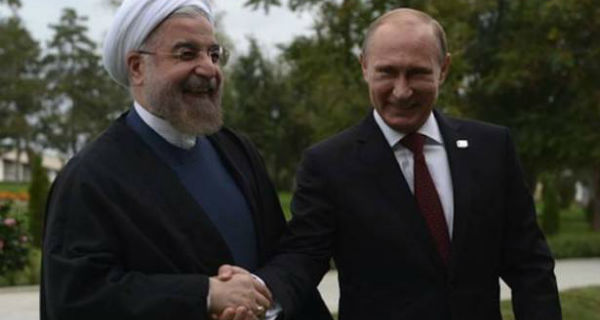Syria: Iranian Policy Caught Between Russia and Turkey
Amir Taheri/Asharq Al Awsat/March 08/16
With Russia and Turkey trying to seize the initiative on Syria, there are signs that Iran, also a key player in the crisis, may be distancing itself from Moscow and moving closer to Ankara. The first sign of this came on Sunday when the Iranian President Hassan Rouhani told a press conference in Tehran that his government would not endorse a Russian proposal for turning Syria into a federal state. “Iran defends Syria’s unity and integrity and the control of all its territory by the government,” Rouhani said.
Hours later, the spokesman for the Russian Foreign Ministry in Moscow denied speculation regarding a rift with Tehran over Syria. “We shall continue coordinating with Iran over Syria within the framework of the international action group on Syria,” he said. To some analysts, however, that denial was more of an implicit confirmation.
“The mention of the international action group is significant,” says Hamid Zomorrodi, a commentator on Iranian strategies. “Tehran had thought of an exclusive double act with Moscow and the effective exclusion of the US and its Arab allies from shaping Syria’s future. When Moscow says Iran would be heard in the context of the international group, a different picture emerges, especially when we know that the US also favours a federal structure for Syria.”In fact, US Vice-President Joseph Biden has gone even further by hinting at the possibility of dividing Syria into three mini-states.
Iran opposes the federal structure and the carving-up formulae for two reasons. The first is that, either formula could block Iran’s easy access to Lebanon, where Tehran has established itself as the de facto power through the local branch of Hezbollah. Russia may end up controlling the coastal strip of Syria through a mini-state dominated by the Alawite minority which, if assured of solid Russian support would have no reason to look to Tehran for support.
Another chunk of Syria could emerge as a Kurdish state, a development that could trigger secessionist sentiments among Iran’s own Kurds, estimated to number 4.5 million. The rest of Syria, composed of a Sunni Muslim majority, would be hostile to Iran which has been arming and aiding the Assad clan for years.
Opposition to the emergence of an independent Kurdish state is the key factor in what looks like a tentative rapprochement between Tehran and Ankara. After a visit to Tehran, Turkish Premier Ahmet Davutoglu declared that he had reached “full agreement with Iran on opposing any division of Syria.” “Neither Turkey nor Iran would allow a new version of Sykes-Picot to be imposed,” he said, referring to a treaty drafted in 1916 by Britain, France, Italy, and Russia to divide the Ottoman possessions in the Levant.
“We witness the emergence of an interesting situation,” says Nasser Zamani, an Iranian analyst. “Iran is with Russia for keeping President Bashar Al-Assad in power for as long as possible. But Iran and Russia diverge when it comes to the future shape of Syria. On that score Moscow is closer to Washington than to Tehran.
The situation with Turkey is different. Tehran and Ankara diverge on the fate of Assad, with Iran wanting to keep him and Ankara wanting to get rid of him as fast as possible. Tehran and Ankara are united in opposing the division of Syria, each hoping that the future government in Damascus would be beholden to them.”
To complicate matters further, Iran’s “Supreme Guide” Ali Khamenei has just launched his “Looking East” strategy with the aim of building a Tehran-Moscow axis to reshape the Middle East by reducing, if not totally eliminating, the influence of the United States and its allies. A split with Moscow on Syria, currently the key issue in the region, would undermine that strategy before it is fully installed. The Rafsanjani faction, of which Rouhani is a member, still hopes for an unofficial Tehran-Washington axis that would allow the Islamic Republic to act as a regional “superpower” with America’s blessing.
Some analysts believe that Tehran could end up finding itself caught in a cobweb of contradictory aims and strategies leading to being side-lined by other rival powers in the region.

















